interview by Michael McCarthy
Several years ago, Megan Davies opened a Youtube account and posted a video of herself doing an experimental, classical guitar piece. It didn’t get many streams, but she kept the account open and eventually started posting other things. Those things being actual songs. Most of them were covers. Some of them were mash ups. Some were originals. All of them have grown enormously popular over the past couple of years. It’s not uncommon for her videos to hit 2 million streams. She does just as well on Spotify, too, if not even better. It was Megan’s recent EP of original songs, Bad Poetry, that sparked my interest. If you like singer/songwriters who are influenced by everything from pop to folk, you’re sure to love her. Songs like “Bad Poetry” and “Only Us” will transport you to a place where you’ll be faced with raw emotion, Megan’s lyrics brutally honest, the young woman clearly wearing her heart on her sleeve. Her music is hardly the audible equivalent of fluffy, bunny slippers, though. On the contrary, “Blind Fools” holds up a mirror to society and makes it look itself in its ugly face. Perhaps you won’t like what you see in that mirror. Unless you’re a sociopath, it should provoke some reaction out of you. Bottom line: these are songs that are all intended to make you feel something. Or to make you think. Or both. No, they’re not bunny slippers. These songs are well-polished, sexy, knee-length cowgirl boots.
MM: What was the first song you ever posted on Youtube and when was it?
MD: I guess technically my first one was a guitar only instrumental that I had posted my Freshman year in college and it’s really experimental. It’s like guitar tapping. So, I played with both of my hands. It was just a piece that I wrote for a class. I thought it was really cool and I posted that. [Laughs] I don’t think anything ever happened, but that’s my first one.
MM: When did you post your first cover or mash up?
MD: My first cover I guess was probably four years later and I hadn’t really used my Youtube. I’ve had my Youtube channel from 2008 but I didn’t really post much. The first cover was actually a mash up with my little sister was actually a mash up of “Radioactive” by Imagine Dragons and “Pumped Up Kicks” by Foster The People. That was the first one.
MM: Is your Bad Poetry EP the first time you release original songs or are some of your many singles originals, too?
MD: Yeah, there were a handful of originals that were released before the Bad Poetry EP. The EP is like the first official album, I guess, where I didn’t record it in my bedroom and actually went to a real studio. So, yeah, there were. I released a song called “All I Ever Want is You.” That was my first original on Youtube and it got a lot of really great support, which was cool. I was very nervous about releasing original music with the covers. And that was kind of like my little [thing] to test the waters a little bit. I posted an original and I did like a weird video to it. It’s probably one of my more positive comments than any video I have. That kind of got my wheels turning. I was like, OK, maybe I’ll try introducing more songwriting and original music. Over the next two years after that I actually started touring. That, for me, was the biggest testing the waters, playing these originals in front of people live. I’d been writing a lot but I wanted to see how they worked in front of an audience. To see how they were received. And see how I felt playing them, you know? Did it feel honest and did it feel real to me? So, I did that and, honestly, I didn’t release a ton of originals until this project because it’s kind of been an exploration for me as an artist to figure it out along the way.
MM: So, what studio was it recorded at?
MD: So, we actually recorded it at my producers – my two producers that I worked with for the full production – they actually own like a house where the second floor is the studio. Technically, it’s still a home studio, although they are a lot more experienced with the equipment and they have a set up that’s probably 10 times as big as my little bedroom recording studio. We kind of held up for a few months and figured it out. I guess there’s no real name for the studio, but it was Kevin Harper’s home studio. He’s one of the producers.
MM: What’s the other producer’s name?
MD: The other producer is Isaac Fox.
MM: How often do you write songs?
MD: Full songs? I don’t finish full songs. I start a lot and don’t finish it. If we’re talking about half songs, probably hundreds of lyrics. I have a lot of voice memos on my phone. Probably around 1500. [Laughs] I feel like I finished – where they’re polished and I’d want to play them for people – I’ve probably maybe 20 to 25.
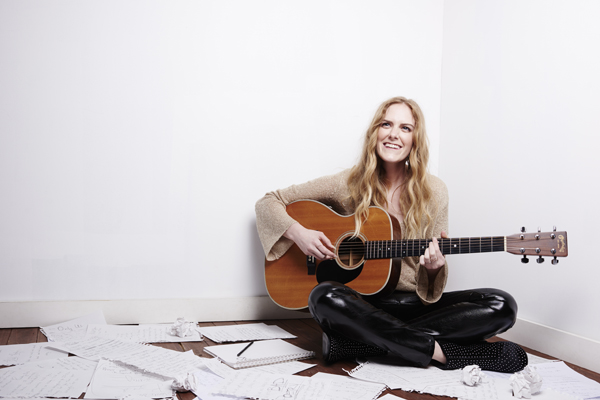
MM: Can you tell us a couple of the stories behind the original songs?
MD: “Blind Fools” was actually written in L.A. last fall. I was working with two friends of mind Curtis Peoples and Colin and Colin is like an electronic producer. The first demo of it that we did together – we all wrote it together – was very electronic sounding. I brought the guitar riff. And, actually, at the time it was election season. Still the primaries but immediately when we got started we were all just kind of bitching about everything going on. I felt very powerless. There were no good options. That’s how a lot of people felt. We kind of tried to put the emotions and those connotations into the song really. So, in a sense, it’s sort of a political song but it really wasn’t written for a candidate or trying to push a political message in any way shape or form. It was more about the emotion behind how we were feeling. I definitely felt very strongly about one side or the other like most people. It’s funny, I think. I’ve had people who’ve felt very differently, who I know who’ve listened to the song and felt like it described their emotions the same way, which I thought was interesting. So, we wrote that song and there was a rap section in the middle that came about after I’d left L.A. It was actually originally just a guitar solo. I play acoustic solos all the time and it’s not very feasible to just go for a guitar solo in the middle when you’re by yourself. So, I wrote sort of a more personal version to my experience and put that in the middle of the song and it kind of just stayed for the record. Everyone likes it. That’s the main point of view of that one.
MM: So, you took classical guitar at Belmont University. What drew you to classical guitar?
MD: I really like finger style guitar. Playing without a pick. I started taking classical in high school, actually. I’ve taken other sort of lessons before that but really dug into classical in high school. I actually went to Belmont originally as a commercial guitar major. So, I started taking classical even though I was still studying commercial. It really influenced my playing style as an acoustic player and I just loved exploring all the parts. I had a very amazing teacher at Belmont who was Brazilian. I just loved his whole approach. Because classical music can be very straightforward. You do things one way. You practice and you have to play it this way. I felt like my teacher here had such an amazing perspective on it. I think it’s one of those things, too, where having the right teacher lead me to continue doing that. If I’d had a different teacher I might not have gotten too much into classical guitar. I feel like a lot of my playing style has been influenced by that. I have long nails on my right hand and I’ve never played with a pick.
MM: Did you have to unlearn anything from your classical guitar teaching when you started writing songs that were more pop or country?
MD: Honestly, I don’t think I did. I don’t think I ever came across a problem. That’s a good question, though. I think I was always – I would do my lesson and I would practice a few hours a day, the pieces I was supposed to practice. But I always picking up the electric guitar later that night and writing. I don’t think I was at any point only immersed in classical music. I studied it for school but my brain – like that first video I posted on my Youtube channel – that was an experimental piece. I was always kind of exploring. I like all different types of music. I never was [married] to just one style. Aside from the fact that I was studying classical.
MM: What was the first instrument you bought yourself?
MD: Bought myself? I would say probably a guitar. The one that sticks out to me – there might’ve been an earlier one that was cheaper – but I saved for two years in high school for this beautiful, red PRS electric guitar. That was my first big purchase. The beginning of the end. [Laughs] Because I started buying so many more.
MM: How many guitars do you have now?
MD: I have three acoustics, a hollow-bodied, two electrics. Maybe like six or seven, actually. Not terrible.
MM: I know there’s a big market for songwriters in Nashville. Have you ever written any songs to sell to other artists?
MD: I actually have not. I kind of hold onto my songs pretty tightly. I do co-write a lot in town and I write a lot with people who are purely songwriters. “Bad Poetry,” the title track of my EP, was written with two friends of mine in town. Bonnie Baker and Karen Kozlowski and they’re not out performing as artists or anything. They’re solely dedicated to the craft of writing songs. It’s really kind of refreshing to talk to people who are solely connected to that craft. Songwriting is a huge part of my day to day, but it’s also only one part of a lot of things. I’m always making videos, producing tracks for Youtube, touring. I just actually got off the road for a month. But there’s a lot of people in town for sure that write day in, day out. Because it’s what they love. I really enjoy working with people like that.
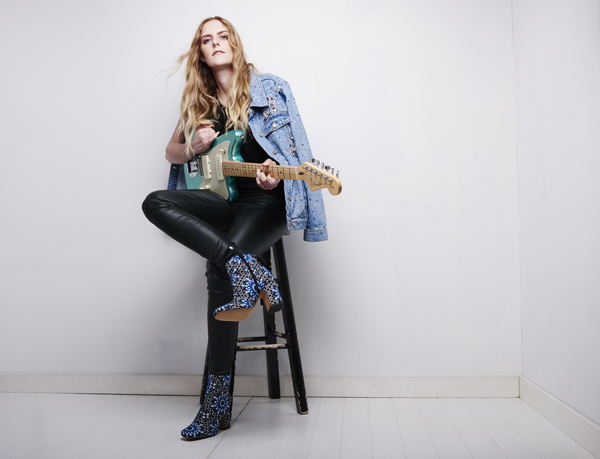
MM: You’ve collaborated with your sister Jaclyn. Is she an aspiring artist?
MD: She is not. She’s definitely my most popular collaborator, which I think is kind of funny because I have all of these different collaborators on my channel who live in Nashville and are friends of mine who pursue music very seriously and go on tour and dedicate their life basically to what they want to do. But my sister, it’s always been a hobby for her. She goes to school in a different state. She went to University of Pittsburgh and she will come down a few times a year to Nashville and we’ll make a video, but it was always just for fun. The first time it was her birthday and that’s actually what she wanted from me for her birthday, to make a track or video or something. I was broke at the time, so I was like, sure, yeah, come down to Nashville. It was an easy enough gift from me. She’s actually, currently, in grad school, studying to be a physician assistant. She’s up at Penn State. That’s the question I get first from everybody, just being on the road for the past month, oh, is your sister coming out? She’s pretty busy and she’s pretty committed to her studies. She really kind of found her passion in the last few years. Helping people and the medical field. To answer your question, she’s a huge collaborator, my biggest, but she’s also – I don’t want to say carefree, but that’s her outlook on the whole thing. I think that’s why people really enjoy her so much because she isn’t trying too hard. She’s trying to make something fun and something cool.
MM: If you could have any one artist cover one of your songs, who would you want to cover you and what song would you want them to do?
MD: Oh, gosh! That’s a great question. I’m trying to envision my favorite artists and what they would sound like singing my songs. I think it would be really fun and I think Ed Sheeran could do a good version of “Only Us.”
MM: What are some songs you haven’t covered yet but plan to in the near future?
MD: You want me to show you my cards. [Laughs] No, I think – I really like Chance The Rapper’s album and I have an idea. I’ve been working out some guitar parts for some of his songs. I think that’s probably next on my agenda. And then I’ll do a mash up with my sister. It’s currently in the works. That’ll be posted soon with two really big songs. I haven’t done a cover in a while, actually, with really big songs. I’ve done some throwback covers again recently.
MM: And how do you come up with the mash ups? Do you play different songs on your acoustic and when you find some that have the same chords you go with that or what’s the method to that?
MD: I’d say it’s probably 90% with my sister. There is a trial and error to it. Not all songs sound great on top of each other. That’s one of the more magical things about this experience is that I’ve realized how in tune we are with each other. We do come up with them pretty naturally. You do try to do them less like a medley because I think before we started doing videos there were a lot of medley style mash ups. Where you sing a verse of this and a verse of this and a chorus of this and a chorus of this. I think that’s what my channel brought that was a little bit new and how we got an edge. And, of course, a lot of people do it now, just straight up singing two songs on top of each other. It takes some trial and error but she’s the one person I can arrange really, really well with and I think – maybe it’s some weird sister thing, but we sit down with the guitar and typically an hour later we’ll have a pretty good arrangement. Or at least an idea of what we want to do.
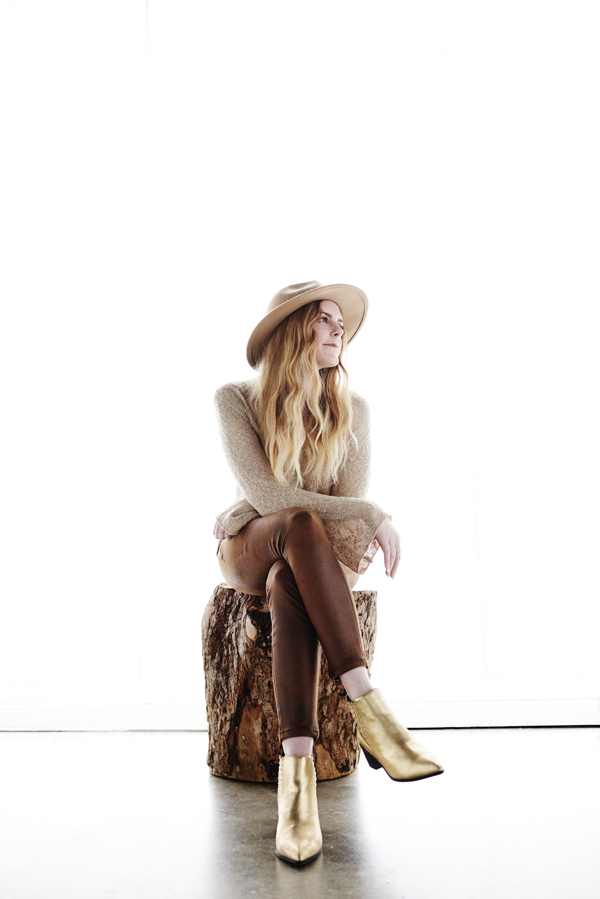
MM: Do you have to get permission from the original artists or songwriters to post the covers or do you just have to pay royalties – how’s that work?
MD: Actually, the artists don’t own the songs in the pop world. They don’t write their own songs. So, you have to get permission from the songwriters. There’s definitely a lot of licensing involved, getting that. But there’s companies that can help with that. Third party companies that work with us. But it’s definitely permissions that have to be granted.
MM: What happens if there’s a song that you do and it was originally written by eight people. Do you have to get permission from all eight people? And do you have to pay the royalty to each of the writers or do you just pay what you’d pay for one writer and it gets divided up among them?
MD: So, technically, you have to get permission from everybody. But there’s companies like Harry Fox Agency or there’s a company called Louder and they do licensing for people. They’re companies that saw a need and that need was when somebody does a cover, how do you get the licenses from all these people that you don’t know. That’s what they do. They get licenses. There’s a small fee, but the license rate is actually set by the government. Currently 9.10 cents goes to the songwriter for every sale or download. There’s a streaming percentage and things like that. But, yeah, for the most part it’s pretty straightforward. And if there’s two writers it’s 4.5 cents each. It just keeps splitting if there are [multiple writers].
MM: Does Youtube pay you for plays the way that Spotify pays royalties?
MD: Yeah, Youtube has ad revenue. It is a little bit different from Spotify. Spotify has a subscription program so the rates are a lot different. Typically, ad revenue doesn’t pay the way that a subscription play will. But, yeah, so, basically, there’s ads like the 5 second type thing then you can skip it at the start of every video. Every time someone watches a video there’s a CPN, which is how much money you get per 1000 views. It always changes. It changes with the time of year or – it’s a confusing thing to figure out sometimes. With iTunes downloads, for example, there’s like a set price and you get this amount, but with Youtube there’s a lot more numbers and percentages involved. So, there is income from Youtube, but it’s definitely more complicated that the other side of things.
MM: Generally speaking, does Youtube pay more than Spotify?
MD: For me, that’s not the case. I think part of that reason is because I’m a cover artist. With Youtube there’s a lot of other copyright owners to pay out. Since there’s other copyrights involved in the video. I think that kind of cuts it down. And, also, there’s no subscription on Youtube. Like I said, it’s just ad revenue. There aren’t people paying 10 dollars a month to watch your videos. For me, Spotify plays is much more lucrative.
MM: And how many are you up to now?
MD: On Youtube or on Spotify?
MM: On Spotify. How many plays are you up to?
MD: Honestly, Stacie [Ed: Megan’s publicist] could probably give you an exact number. I’m not entirely sure, actually.
MM: It’s millions though, right?
MD: It’s in the millions, yeah.
MM: That’s cool.
MD: Yeah, I’ve actually been really lucky on Spotify. Because Youtube was my first platform and Spotify did well for me, but that was later on. I always got nervous. My music only existed on this website. If Youtube went down, I would go down with them. I’d be working at Starbucks. It was super reassuring for me to see the music do well outside the videos, that people listen to it even without being able to see it. That’s really cool.
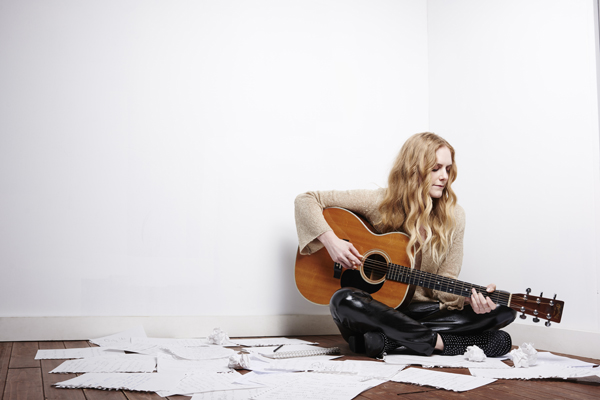
MM: Is your EP doing well?
MD: It is. I think we just hit a million streams across all the songs. It was just released in late July. The feedback – the comments and engagements – that’s what I’ve been taking a lot of cues from. Because I know when I do a cover of a song that millions of people are searching for every day, that’s just basically like promotion in a sense. Whereas, if I do an original song that no one’s searching for it doesn’t get quite the traffic. But it’s been encouraging to me to see the engagement level. The number of thumbs up and people commenting and sharing how they feel about the song. That’s been really encouraging, people showing their support. People who’ve listened to my covers for so long now are listening to my original music.
MM: Do you read the comments that people leave you then?
MD: I do. The only one that I take breaks from is Youtube. Youtube, it’s a lot to take in. I used to read all of them. I used to read every single one. I’ve found it started effecting my work a little bit, creatively. There’s a lot of sort of arm chair critics on Youtube and I started to make decisions like, well, if this person thinks it’s too slow maybe my covers are too slow. I’m sure there are people who could read that and not let it effect them but as soon as I realized I was effected by that I realized I had to limit the amount I was reading. Even completely, just turning it off for periods of time while I really focus on making content.
MM: I understand because I’ve self-published a few books and most of my feedback is positive, but occasionally there’s one that says it sucks or whatever and I’m like, this person must have a lot of time on their hands if they can write this big, long review about why my book sucks.
MD: It also hard, too, because I can only imagine how long it takes to write a book. The motivation and all of that. Like with my videos, there’s a lot of thought and time and love that goes into every one. Especially, like right now, I’m in the last 10 percent of a video and I’m working on every detail. It’s always the last decisions that I’m unsure about. I go back and forth on a million things. There’s so much time and thought and energy that goes into it. But definitely not as much energy as it takes to write a book or something.
RANDOM QUESTIONS:
MM: Name three artists that people would be surprised to know that you like.
MD: Radiohead. I love Macklemore, the rapper, and Ryan Lewis, his producer. And I love this band called Metric from Canada.
MM: Oh, I love them, too.
MD: They’re one of my favorites.
MM: What did you think of their last album? It was so electronic and different, I thought.
MD: For me, my favorite album is Fantasies. The [new one] wasn’t my favorite but as someone who’s building a career in music I just love and have so much appreciation for how they just keep going and keep pushing themselves to do new things. I’ve seen them live twice now, actually.
MM: Yeah, Fantasies is my favorite Metric album, too. Are you currently binge-watching anything?
MD: I actually just watched so much on the road. I did about 7 to 8 hours in a van a day. I binge-watched Black Mirror, which is amazing, but I would not recommend binge-watching because it’s very dark.
MM: I’ve watched one episode of that and I haven’t gone back. It was pretty disturbing.
MD: They’re all disturbing and I binge-watched. I enjoyed all of it, but I don’t know how I went on stage every night. I binge-watched Big Little Lies on HBO and I enjoyed that. I think I did so much binge-watching in the van that I’m currently not binge-watching anything at the moment. When Stranger Things comes out with season 2 I’m sure I’ll binge watch that.
MM: Have you watched Thirteen Reasons Why?
MD: I did. That’s also dark.
MM: I really liked that.
MD: I liked it as well. I also understand the criticism, though. People have said that it’s glorifying certain aspects of depression and suicide. I suffer from depression and there’s definitely the tone and there were moments that brought a lot of stuff back for sure.
MM: I’m bipolar myself, but I’d actually read the book so it didn’t surprise me.
MD: I’ve actually never read the book before.
MM: They’re both really good. I don’t know, honestly, which one I’d say is better. But I actually interviewed the author of the book for my website. His name is Jay Asher. So, what was the first concert you ever attended?
MD: My first concert was Hanson when I was five years old. They were the young brothers with the long brown hair that I think everyone in my elementary school had a crush on. I went and we had like floor seats in the arena and I couldn’t see anything because I was so short. I was with my mom and it was so loud. I remember hating it, actually. I started crying a little and my mom took me outside the stadium and we sat outside on the car listening to the rest in the parking lot. [Both laugh]
MM: Can you tell us three things from your bucket list that you have yet to do?
MD: My bucket list? Hmm. Oh, wow. OK, I have not traveled enough for my liking. I would really like to go to Australia and South Africa and South America as well. Brazil has been on my bucket list. There’s quite a few travel locations. And as far as other things, let me think… It should probably be thrilling like skydiving or something, but at some point in my life I would like to live on the water somewhere. Whether it’s like a lake or beach. I would like to just live out my life as a beach bum for a period of time. Trying to figure out what the third one would be.
MM: Is there a language you’d like to learn?
MD: Yes, although I think they’ll probably invent something that will let people communicate with each other in different languages. I’m also not good at languages. I was never very good in Spanish. I think that if you’re talking career-wise, there’s a lot of bucket list items. You’re always kind of working your way up. Like we just did a tour in a van. The headliner, Boyce Avenue, had a bus. [Laughs] It looked really good on there. That’s one of my short term goals, to tour in a bus.
MM: What was the last album you bought?
MD: The last album I bought physically at a store?
MM: Or you could’ve downloaded it from iTunes. Whatever format.
MD: I’m always, always listening to stuff. I’m a Spotify listener. So, I’m always saving new albums and listening to them on Spotify. The last one I think I bought was Emily King. She’s from New York. She’s from Brooklyn and she’s a singer/songwriter and it’s one of my favorite albums, actually.
MM: If you could resurrect one musician from the dead, who would you bring back?
MD: It’s too much power. I mean, I think Amy Winehouse is one who had so much music that needed to be made with that voice. I also think of people who died too young. Obviously, Tom Petty would be nice, but he’s got such a body of work. I’m 27 currently so the whole idea of the 27 club is something I thought a lot about. It’s really creepy, you know? But like Kurt Cobain and Janis Joplin. There’s quite a few.
MM: Jim Morrison is one, too, right?
MD: Exactly, yes.
MM: Final question. What’s the best piece of advice you’ve ever been given and who gave it to you?
MD: So, I’m from Pennsylvania originally and I wasn’t raised very religious and I was a little nervous about moving to the south. I was afraid everyone goes to church down here. If you don’t go to church you’re shunned. Religion is a little more of a communal thing down here. And even Belmont, where I went to school, was originally a very religious university; I was nervous. But I had a professor the first day of class for all new freshman and he had worked in the industry for years and had actually worked with some pretty amazing companies. He told the class, use this time before you enter the music business, and as you’re getting ready to enter the music business, to figure out their beliefs. Their ethics. Their morals. Everything. Because the entertainment industry – and even business – can challenge those at times. He encouraged us not to dive right into music and the music business and get so excited, to really think about those things. It wasn’t like he was saying, go become a Christian, go to church. He was saying this is an industry that has a lot of rejection. A lot of big decisions. And you’ll face those. And it’s difficult. And if you have some sort of core belief system – or even a belief that this is what you’re meant to do – that it can get you through the tough times and help you more than anything. He said that in a very short, simple way.


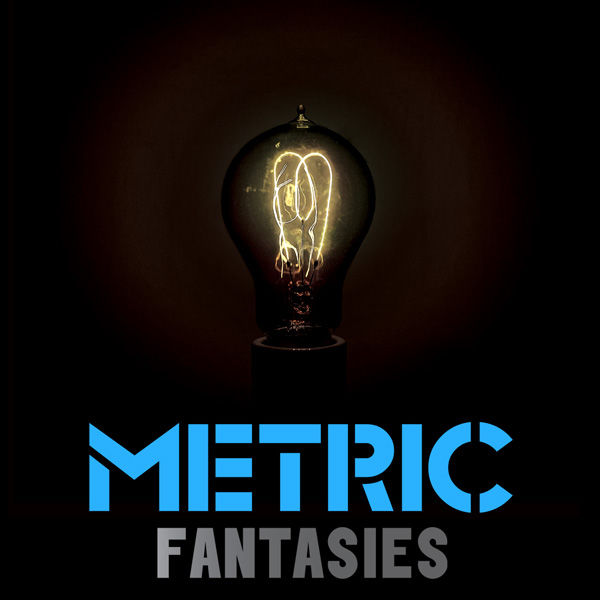
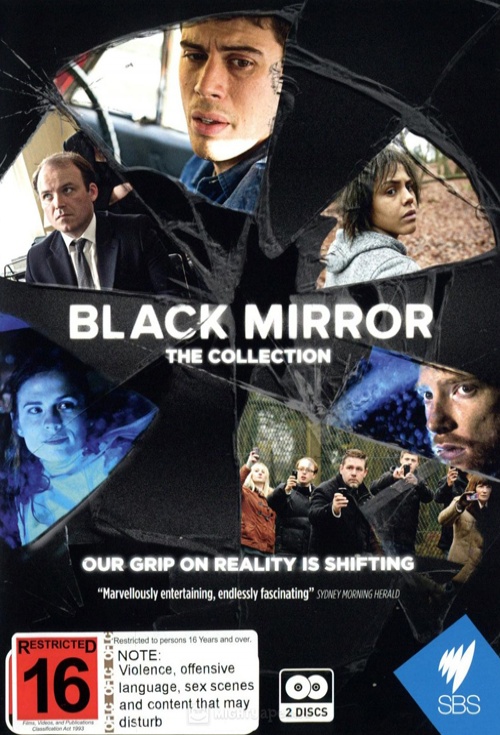



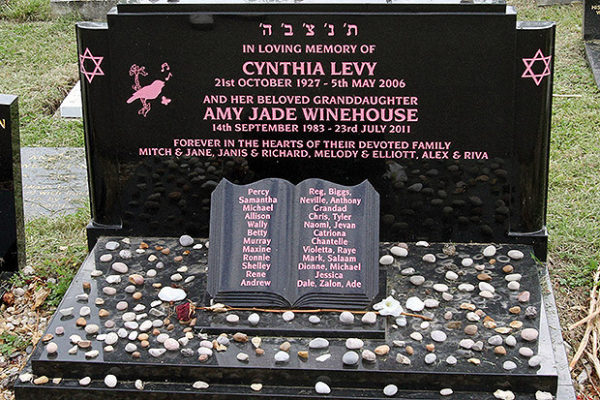
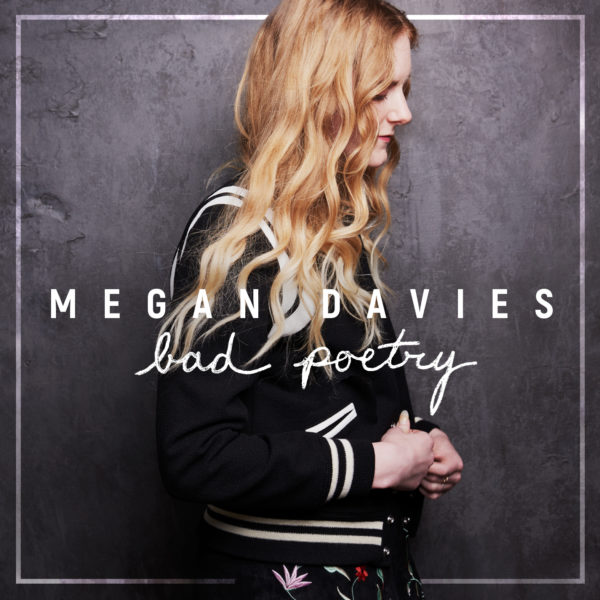
Leave a Reply to Johnny Cancel reply